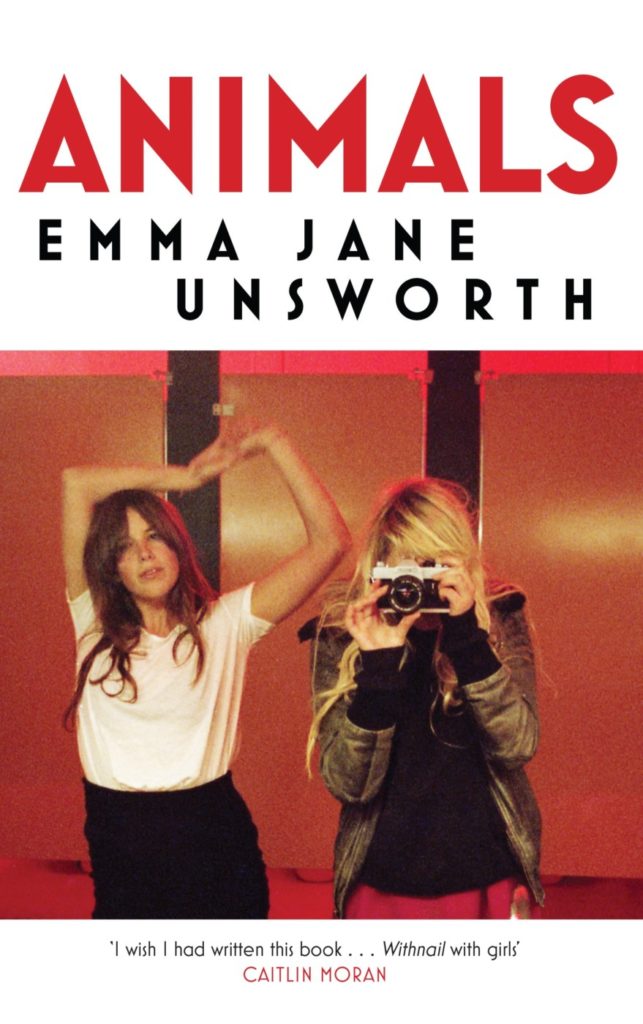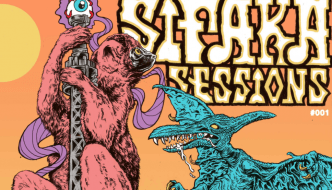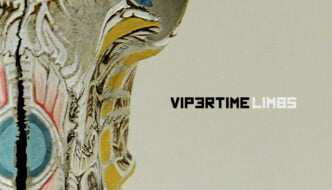 I’m not going to say too much about this month’s book club choice, Animals by Emma Jane Unsworth. It gets at those dark and difficult questions which rumble under the surface of everyday life whilst treating you to a lot of fun. It features some of the most outrageous and wonderfully flawed female characters that I’ve come across in contemporary culture. Find out more in the short interview below, then come and discuss it at the next Hyde Park Book Club Book Club on November 8th.
I’m not going to say too much about this month’s book club choice, Animals by Emma Jane Unsworth. It gets at those dark and difficult questions which rumble under the surface of everyday life whilst treating you to a lot of fun. It features some of the most outrageous and wonderfully flawed female characters that I’ve come across in contemporary culture. Find out more in the short interview below, then come and discuss it at the next Hyde Park Book Club Book Club on November 8th.
Animals foregrounds female friendship in a nuanced, hilarious and sometimes quite terrifying way. Did the process of writing throw up any surprises for you in this area?
I honestly didn’t know what I thought about the issues I was exploring until I started exploring them through the characters. That’s usually the way for me – and it keeps things interesting! I do love surprises. So it was mostly through Tyler’s voice and words, and the way her character grew and responded to Laura’s predicament, that I managed to find the deepest, scariest stuff about friendship. And also I suppose the most obvious. Like, I’d never really thought before how WEIRD it is that we usually just leave our friends and move in with a ‘romantic’ partner at some point, and that’s some kind of right of passage. Tyler questions this, and I think she’s right to. But then, she isn’t some virtuous example of an ideal buddy – far from it. She’s a complete demanding nightmare at times, and she wants everything completely her way. So she becomes a defender of the notion of lifelong friendship, but also not its greatest proponent. A hypocrite – i.e. a normal human! Because people do terrible things to each other all the time, especially friends – especially best friends. And that gives us things to write novels about.
“You Know How It Is. Saturday Afternoon. You wake up and you can’t move.” How did you develop Laura’s voice? Did it change much during editing?
I think that first line came when I was about halfway through the novel. I thought, yeah! That’s it, I just want her to be talking directly to the reader – like an ally, or a co-conspirator. I was writing for all the women out there who still get messy when they’re probably told they’re too old to get messy. I also liked the idea of Laura being a drunken raconteur, drawing you in and telling you stories. I mostly write in first person, and I wanted Laura’s voice tone super-close to the reader so we get her internal thoughts in italics a lot too, and her talking to herself, reprimanding herself, because that amused me in a Peepshow voiceover kind of way. She’s often tortured and anxious and I wanted to make the most of that. Aren’t we awful to our characters? I often think fiction writers are total sadists.
Can you say a bit about Manchester’s function as a character in the novel?
Manchester was perfect for two reasons: 1) I know it well, and I’m VERY lazy when it comes to research, and 2) it’s a place in flux, constantly changing and undergoing much development, just like my protagonist. In hindsight, I also see now I was writing a bit of a love letter to my hometown, or a Dear John letter even, because I have moved away for a while. I live in Brighton at the moment, like a traitor. But I will be back. Being far away from home has also worked wonders for my Mancunian accent. I Manc it up much more than I did before. I am spreading the good gospel.
Animals is being made into a film and you’ve written the screenplay. How has this experience compared with writing a novel? Has it made you see Animals and its characters differently?
It was the steepest learning curve of my life since A-levels. It has made me really appreciate screenwriting as an art form, and a tight one at that. Every line has to do something. No – every line has to do three things, if possible. It’s not like a literary novel, where you can dither and meander. And I love meandering. I’m a big ditherer. But I have also gleaned an immense amount of pleasure out of writing something muscular and taut and succinct. It’s made me realise that the real heart of the book was a battle between movement and stasis. Boiled right down, past all the booze and jokes and bodily functions, it’s essentially about people who want to grow and change, and those who don’t. And how society’s ideas about what constitutes ‘growth and change’ might not always equate with an individual’s. I’ve just signed off the last edits on the script so it’s in the hands of the director now, Sophie Hyde, who is brilliant. I’m madly excited to see what happens next. I’d love to do more screenwriting. I’m waiting for an idea to come along and say I’m a film! That hasn’t happened yet. They come as novels first. But I’ve had some TV ideas. I’m writing a TV pilot about a pregnant woman going off the rails, and a sitcom about writers, which sounds terrible, but writers do deserve the piss taking out of them a lot more.
We’ll be talking Animals and probably enjoying a drink or two at the next book club on November 8th. Find out more on the Facebook page or by tweeting Clare at @claresitafisher.
Filed under: Written & Spoken Word
Tagged with: book review, contemporary literature, Hyde Park Book Club, screenwriter



Comments